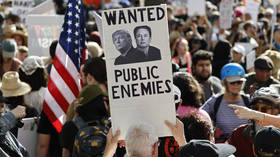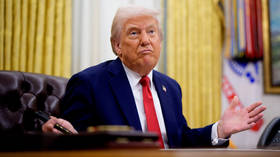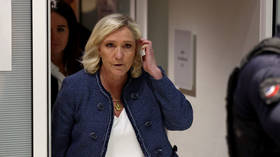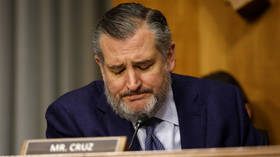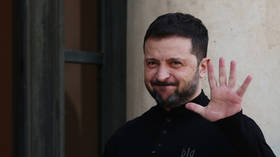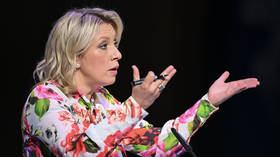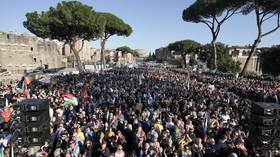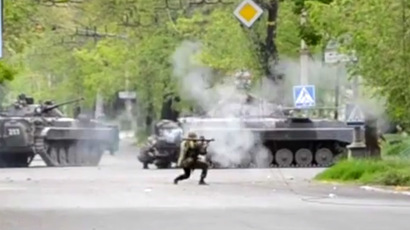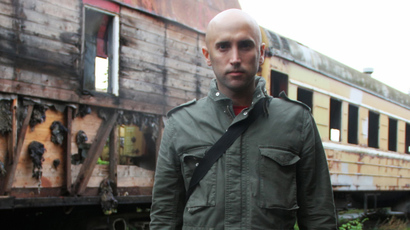Graham Phillips on his detention by Kiev security forces
After 36 hours of detention and questioning by various security forces, suspecting him of spying for Russia, British journalist Graham Phillips has been released without any charges pressed. The RT contributor described his time spent captive.
Phillips was arrested on Tuesday at a checkpoint near Mariupol while investigating the bloodshed in the police headquarters in the southeastern port city on May 9, 2014. The journalist explained that he was just taking photos and talking to the armed men at the roadblock as he has done before “dozens of times” covering the turmoil in eastern Ukraine.
‘Things escalated when they saw I work for RT’
“I was questioning these soldiers at the checkpoint in Mariupol on what happened on that day, and I've done that a lot of times before.”
“And then they saw that I work for RT, and then things escalated after that,” Phillips explained. “It got more serious this time. They started phoning people and then I was detained. I had my things taken off of me and interrogated quite thoroughly.”
“I was with soldiers at this point at a block post and then the SBU came, this is the Ukrainian Secret Services.”
That is where Phillips said that he knew that he wasn't going to get released. Two locals accompanying Phillips were both released soon. He in the meantime was taken away late on Monday night, around 9 pm local time, after having spent 9 hours at the military checkpoint.
‘I was held at a gun point and that was quite dramatic’
The UK journalist said that he was transferred to Zaporozhye in a police van at “gun point,” where he was delivered to an army base barracks. “An SBU man made it quite clear that I was under detention,” Phiilips told RT.
“I was spoken to in quite robust terminology. There was no question that I was a prisoner,” the journalist said.
The RT stringer specified that he clearly understood the line of questioning by the Ukrainian authorities, as he speaks and understands Russian.
“They were alright. I mean they fed me, they looked after me, but I was held at a gun point and that was quite dramatic,” he told RT.
“I had a bulletproof vest on, and that for some reason triggered some sort of a response. They were telling me that I needed to have some license for this bulletproof vest and this helmet. They basically confiscated my bulletproof vest.”
‘Are you the guy with a bounty on your head?’
The Ukrainian authorities also accused him of being a spy, Phillips says. Working for Russian TV is a “black spot”, UK national says, that is why the soldiers looked at him “with particular wariness.”
“You are working for Russian TV? What is your purpose? Are you a spy?” Phillips described the kind of questions he was asked.
Answering the question whether or not he felt in danger, the RT stringer replied that every journalist knows “if you make a wrong move, the gun does not ask a question twice.”
“They found some clips of mine. They were looking through the phone of my taxi driver, my partner, my helper, and they found some clips of mine that he had on that phone and then they knew who I was. And then the SBU guy came. He really quickly ascertained exactly who I was, and was asking me questions pertaining to quite specific details, such as am I the guy with the bounty on his head?”
Phillips says that despite the incident he stands by his objective journalism and believes he has not done anything wrong. He also thanked RT for giving him support, accreditation, and “full endorsement.”
“I've been asked quite specific questions about me, about my pieces, and about Crimea,” Phillips says. “I as a journalist went up to Crimea and stood by that referendum, the validity of this referendum.”
“They disagreed with it,” Phillips said about Security Service's view on his reporting, “but the bottom line is that they let me free, I'm ok, and I'm hoping that I might get my things back tomorrow.” He says that at the end of the day the Ukrainian authorities treated him “fairly.”



